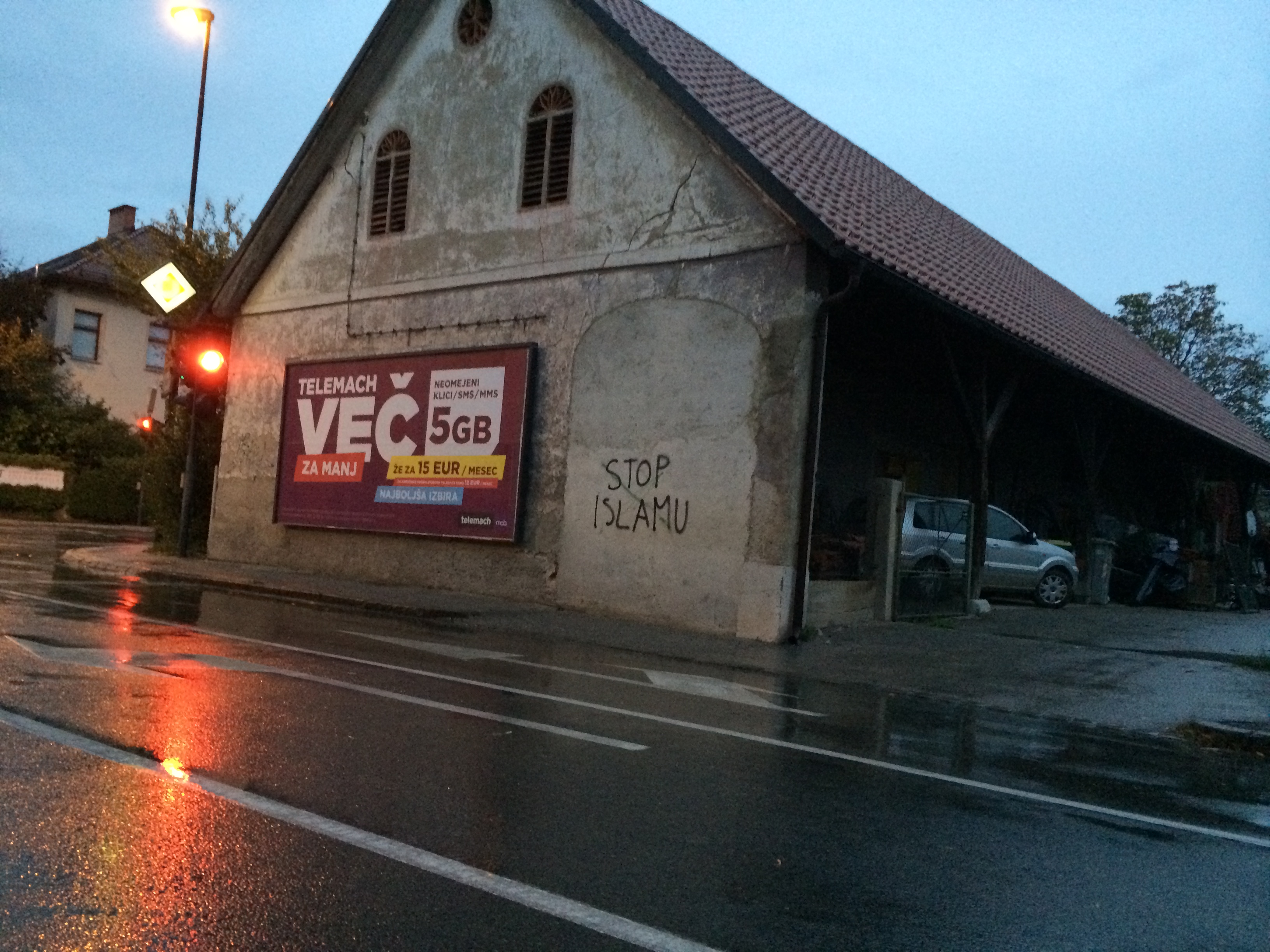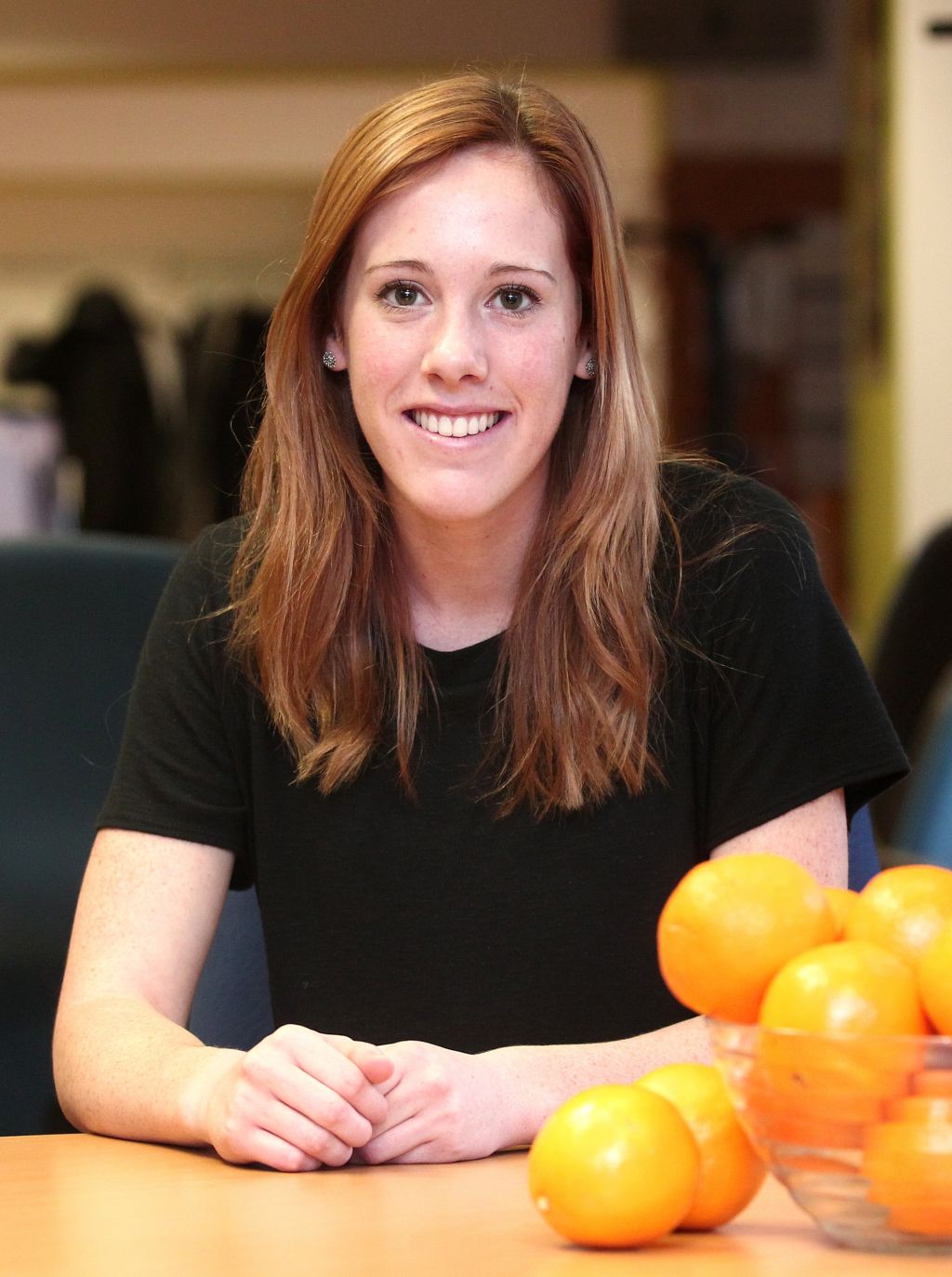Kot človeška bitja se nagibamo k temu, da ne maramo (ali pa celo sovražimo) reči, ki jih ne razumemo. Primer: sama ne razumem, zakaj ljudje jedo brokoli. Videti je kot drevo in sploh ni okusno. Zato ga ne maram. Enako načelo pa velja tudi pri stvareh, veliko pomembnejših in večjih od te. Pride dan, ko sovražimo nekatere skupine ljudi. Le zato, ker jih ne razumemo. Lani sem imela na faksu sostanovalko, katere bratranec je misijonar v Rusiji. In vsakič, ko ji je pisal, kako njegovo delo tam ni uspešno ali kako ga morijo okoliščine dela, so moja sostanovalka in njena družina takoj povzeli, da so za to krivi Rusi. Velikokrat sem so poslušala, ko je bentila čez Ruse, čeprav nikoli ni niti videla Rusa. Ker so odnosi med ZDA in Rusijo že dolgo napeti, mnogi Američani nimajo o Rusiji ravno najboljšega mnenja. Enako velja za njene prebivalce. A nobeno od teh mnenj nima podlage v osebni izkušnji. V tem primeru bi bilo najbrž precej drugačno.
Enako je tudi drugod po svetu. Na eni od stavb v Ljubljani sem tako pred dnevi videla grafit »Stop islamu«. Stop islamu? Kot veri? To nima nobenega smisla. Ampak tovrstne predsodke imamo tudi v ZDA. Imamo ljudi, ki kandidirajo za predsednika države in predlagajo, naj muslimanom prepovemo vstop v državo. Poleg tega predlagajo nadzor sosesk, kjer bivajo muslimani. Pustimo dejstvo, da sta oba predloga povsem nepraktična, preprosto sta neumna. Seveda v svetu obstajajo radikalne islamske teroristične skupine, ampak to je to: so radikalne. Večina muslimanov pa je navadnih ljudi s svojo vero. S skupinami, kot je Islamska država, in potem še z begunsko krizo (pri čemer je velika večina beguncev prav muslimanov) smo se začeli bati skupine ljudi, ki si tega ne zaslužijo, kakor tudi ne vseh naših predsodkov. Da, seveda gre za zadeve, o katerih je strašljivo razmišljati in moramo se zavedati potencialnih nevarnosti, a to ne sme biti izgovor za nestrpnost. So ljudje, ki prihajajo iz zelo drugačnih kultur in ver, ki niso niti malo podobne krščanstvu, in to težko razumemo. Zato, kot je že v navadi, postanemo agresivni do ljudi, ki jih ne razumemo. Kar pa je smešno in neutemeljeno, zato se moramo naučiti to premostiti.
Ena od stvari, ki sem se jih naučila v zadnjih treh mesecih in ki se je res usidrala vame, je, da so ljudje ljudje ne glede na to, kam greš. Že v preteklosti sem veliko potovala, a bila sem mlajša in nikoli nisem zares dobila priložnosti, da bi si ustvarila takšne stike, kot sem jih tu, v Sloveniji. Odkar sem tukaj, sem spoznala toliko čudovitih ljudi in s tem, ko sem jih spoznavala, sem se naučila, da so ljudje povsod enaki. Seveda se kulture razlikujejo med seboj, a na najosnovnejši ravni smo prav vsi enaki. Želimo se počutiti varne, imeti okrog sebe tiste, ki jih imamo radi, želimo si biti srečni in uspešni. Okolje je drugačno in način, kako se lotevamo stvari, a tisto, kar si želimo, ostaja enako. Neizmerno hvaležna sem, da sem se lahko to tukaj naučila. Čeprav v Sloveniji nisem dolgo, lahko iskreno rečem, da imam to deželo zelo rada. Obožujem ljudi in kulturo. (In še posebej hrano.) Zato bi se rada zahvalila, da si to čudovito deželo delite tudi z mano. Trajalo je 20 let, a zaradi izkušenj, ki sem si jih pridobila tukaj, končno razumem osnovno načelo človeštva: sploh si nismo tako zelo različni.

Angleški izvirnik
We Aren’t That Different
As humans, we have a tendency to dislike (or even hate) the things we don’t understand. For example, I don’t understand why people eat broccoli—it looks like a tree and it doesn’t even taste good—therefore, I hate it. But this principle applies to much bigger issues as well. Sometimes we hate large groups of people just because we don’t understand them. I had a roommate in college last year who has a cousin serving a church mission in Russia. Whenever he wrote about his lack of success or frustrating circumstances, my roommate and her family immediately jumped to the conclusion that it was the fault of the Russians. On multiple occasions I listened to my roommate berate the Russian people, even though she had never even met a Russian. Because the U.S. has had strained relations with Russia, some people in the States have sour opinions about the country (including the people), but almost none of them have opinions based in real, personal experience—if they did, I think their opinions would be much different.
This is the same in lots of places. I saw some graffiti on a building here in Ljubljana the other day that said “Stop Islam.” Stop Islam? As in, the entire religion? It just doesn’t make any sense. We have issues like this in the U.S. too. There are American presidential candidates who suggest that we keep Muslims from entering the country, and that we patrol Muslim neighborhoods. Besides the fact that neither of these suggestions are practical, they’re downright ignorant. Sure, there are radical Islamic terrorists groups out there, but that’s just it: they’re radical. Most Muslims are just regular people practicing their religion. With groups like ISIS in the world, and then the refugee crisis (where a large percentage of those immigrating are Muslim) to top it off, we’ve become scared and intolerant of a group of people who don’t deserve it. Yes, of course, there are scary issues to be dealt with and situations to be aware of, but that is never an excuse for racism. These are people who come from very different cultural circumstances than the Christian world, and we have a hard time understanding that. Therefore, as per usual, we become hostile to a group of people we don’t understand. It’s ridiculous and unjustified, and we have to learn how to rise above it.
One of the lessons I’ve learned in the past three months that really sticks out to me is that people are people, no matter where you go. I’ve traveled abroad before, but I was younger, so I never really had any of the opportunities to interact with people like I’ve had here in Slovenia. I’ve met so many amazing people in the time that I’ve been here, and through interacting with these people, I’ve come to understand that people are the same no matter where we go. Of course, culture creates differences, but on a basic level, we are all the same. We want to feel safe, to be around the people that we care about, and to be happy and successful. The setting is different, and the way we go about achieving these goals is different, but we all want the same things. I’m so thankful to have had the opportunity to learn this while I’ve been here. Although I haven’t been here long, I can honestly say that I love this country. I love the people, and I love the culture. (And I especially love the food.) So thank you for sharing your beautiful country with me. It’s taken me 20 years, but because of the experiences I’ve had here, I finally understand a really basic principle about humanity: none of us are really that different.








